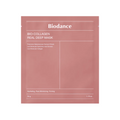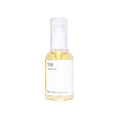How Do I Know My Skin Type? - M Tips 104

When it comes to skin, there is no one-size-fits-all solution. While some skincare products cater to common skin problems like acne or skin aging, brands are increasingly creating solutions for specific skin types. For your skincare routine to be effective, it's important to know which skin type category you fall into.
Different skin types have different characteristics. Though there are about 9 to 10 different types of skin, here we're taking a look at the five basic categories.
Normal Skin
Normal skin is well-balanced skin. Neither too dry nor too oily, it is comparatively healthy skin and doesn't require much maintenance. Normal skin types are, more often than not, well-suited for most skincare products.
Naturally radiant, this skin type feels smooth and clean. While people with normal skin usually don't notice any changes in their skin throughout the day, they are also fortunate to not have frequent breakouts as well.
Dry Skin
The sebaceous glands are small glands in the skin that secrete an oily or waxy substance called sebum. Skin that manufactures less sebum than normal is dry skin as it lacks the adequate moisture required to form a protective barrier against the elements.
As a result, dry skin feels rough, flaky, tight, and is often susceptible to scaling, flaking, or peeling, which causes irritation. Even during makeup application, they may face dry patches that makeup unfortunately clings onto which can emphasize dryness and texture and flakiness. Similar to sensitive skin, minus the redness, dry skin exists in varying degrees of severity.
While for some dry skin is a temporary condition that they are more prone to in the winter, for others, it is a life-long issue. People with dry skin are more prone to skin aging concerns like wrinkles and fine lines. Dry skin types will often find that hydrating and nourishing products work the best for their skin type.
Oily Skin
Skin that has an overactive sebaceous gland produces more sebum, also known as seborrhea. So, people with oily skin typically have clogged pores. That is why they are more vulnerable to breakouts, blackheads, and whiteheads that usually surface in oily areas of the face.
As the day progresses, oily skin tends to shine, and it feels greasy, moist, and coarse. Especially in the "T" zone – the forehead, nose and chin, pores are visibly enlarged. Plus, it's hard keeping makeup on for long. They will often find dewy or deep hydrating products to be too heavy and greasy for their skin, so matte formulations are often preferred. Oily skin types are often recommended gel formulations or products that sink deep into the skin without leaving any heavy feeling on the surface of the skin.
Combination Skin
This skin type lies somewhere between the oily and dry range. It is one of those tricky skin types that require trial and error with different products. While some areas of the skin like the "T" zone appear oily, other areas of the face will feel dry.
Often times, combination skin type will experience seasonal changes on their skin much like dry and oily skin types. Finding a well-balanced assortment of skincare products will help address these issues.For example, one might be better suited using slightly heavier products during the winter and more lightweight textures during the summer.
Sensitive Skin
With a propensity to get easily irritated, sensitive skin is susceptible to red patches, burning, rashes, dryness, tingling, and itching. Sensitive skin generally feels dry and rough.Usually, certain triggers cause the skin to develop sensitivity.
While there are many possible causes, it often boils down to improper skincare products and environmental stressors. You may also have sensitive skin on top of any of the above mentioned skin types (e.g. dry, sensitive skin). It is important for these skin types to check what ingredients react to their skin and find products with mild, gentle formulations.
Regardless of which skin type you have, the below skincare guidelines apply across the board.
· Stay hydrated
· Moisturize daily
· Use a broad-spectrum sunscreen that blocks out harmful UV rays everyday
· Eat a well-balanced diet
· Do not smoke
· Never wear makeup to bed
By following these tips, you will prolong the youthful vitality of your skin and delay the onset of early skin aging!
Until the next one,
Stay Glowing

















